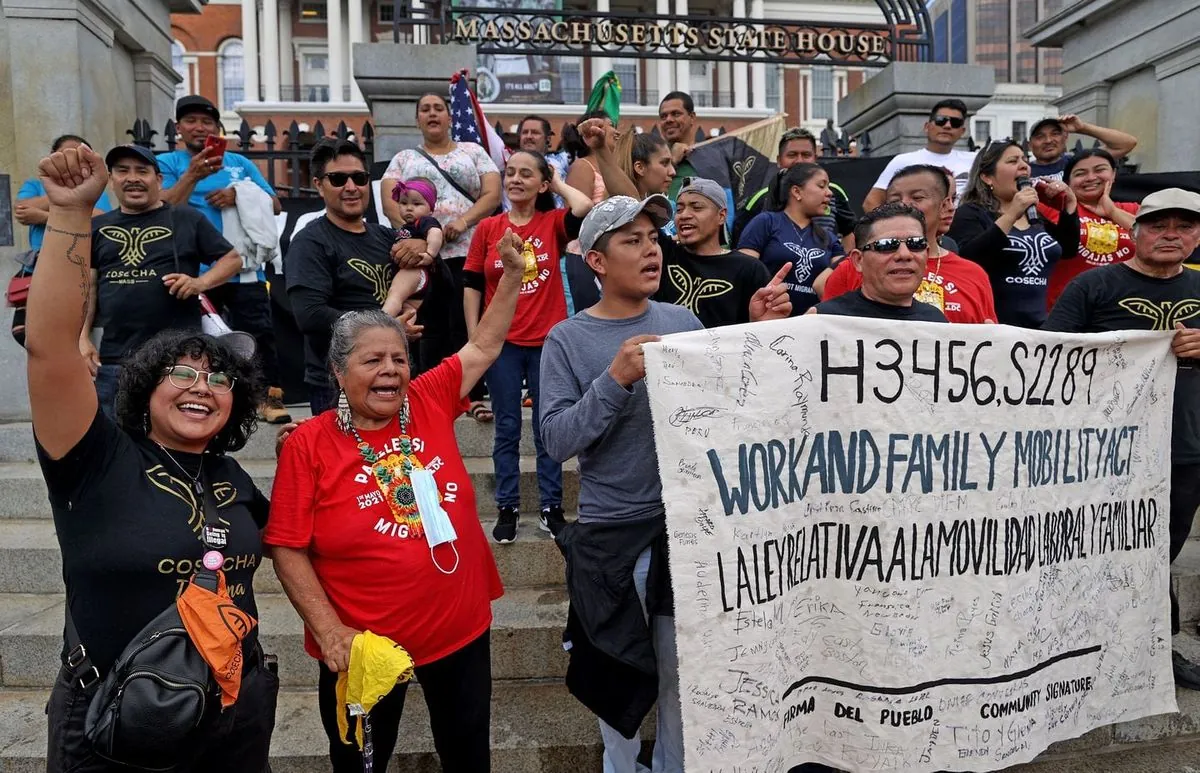GOP Grapples with Trump's Mass Deportation Plan Amid Latino Voter Concerns
Trump's mass deportation pledge divides Republicans, raising concerns about feasibility and impact on Latino voters. Democrats mobilize in response, as both parties eye crucial Hispanic support in swing states.

The Republican Party finds itself at a crossroads as it confronts Donald Trump's ambitious plan for mass deportation of migrants, a proposal that has ignited debate within the GOP and raised concerns among Latino voters. This strategy, reminiscent of the controversial 1954 initiative known as "Operation Wetback," has become a central pillar of Trump's campaign to reclaim the White House.
Trump's vision for immigration enforcement includes utilizing the National Guard and potentially the military to target between 15 and 20 million people for deportation. This figure significantly exceeds the government's 2022 estimate of 11 million migrants residing in the U.S. without permanent legal permission. The scale of this proposed operation has drawn comparisons to historical events, such as the Bracero Program that operated from 1942 to 1964, which allowed Mexican guest workers into the country.
Some Republicans, like Lauren B. Peña, a Texas activist, express discomfort with the harsh rhetoric surrounding immigration. Peña hopes that Trump's statements are mere posturing rather than concrete policy intentions. However, Trump and his advisers, including Stephen Miller, appear committed to a comprehensive plan that would dramatically reshape U.S. immigration policy.

The proposed measures extend beyond deportations. Trump has pledged to end birthright citizenship, a right established by the 14th Amendment in 1868. Additionally, his administration could halt temporary programs affecting over a million migrants, including DACA recipients and those fleeing recent conflicts.
"If the 75,000-plus immigrants who perform the hardest of work in Wisconsin's dairy and agriculture were gone tomorrow, the state economy would tank."
This statement underscores the potential economic ramifications of mass deportations, particularly in key industries and battleground states. The impact on sectors like agriculture and construction has raised concerns even among some Republican lawmakers who support stricter border enforcement.
The immigration debate has also influenced the Democratic strategy. In response to recent border crossing surges, Democrats have shifted rightward, emphasizing border security alongside relief for existing immigrants. Organizations like Voto Latino report increased voter registration efforts, reflecting heightened engagement among Latino voters.
As the November 2024 election approaches, both parties are keenly aware of the pivotal role Hispanic voters could play in swing states. Trump secured 35% of the Hispanic vote in 2020, but recent polls indicate that about half of Hispanic Americans view him unfavorably.
The Republican Party's embrace of Trump's immigration stance marks a significant shift from previous approaches. This change echoes historical moments in U.S. immigration policy, such as the Immigration Act of 1924, which established national origin quotas, and the Hart-Celler Act of 1965, which eliminated them.
As the debate continues, the feasibility and economic impact of mass deportations remain contentious issues. The coming months will likely see further discussions on this topic, potentially shaping the outcome of the upcoming election and the future of U.S. immigration policy.


































